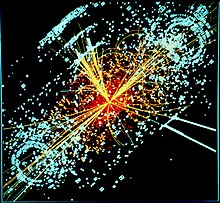Now there is a word I have been looking for for years... thanks.Internal contradiction, same as last time. At the end you admit it is ABOUT (language, modeling, representation, map, etc). But before that you declare IT IS.
"Mathematical" refers to mathematics, a human discipline. The universe at large does not engage in that activity. It does not work with concepts and abstract affairs. You are reifiying the latter.
reification
http://changingminds.org/disciplines/argument/fallacies/reification.htm
reification
reification
https://en.wikipedia.org/wiki/Reification_(fallacy)
If someone points to apples on the ground, and remarks that there are eight under the tree, what is there are the phenomenal objects (apples), not the idea of eight. The latter in everyday application is the conception of the apples as belonging to a set or group, it is a symbol for either a visual or manual measurement (counting) that was carried out using a system for expressing magnitude, etc. You can kick apples, you can kick a box with the sign of "8" written on it -- but you can't kick the idea of eight.
If roads outline an overhead pattern called a square, what's there are the physical details, not the geometrical concept an observing mind is projecting upon the appearances (for recognition and identification purposes).
Abstract entities require a a cognitive and intellective orientation which invents them, finds them interesting, useful, etc. The cosmos as a whole does not possess such. It does contain smaller organisms which do, however.
~
Reification!
Perhaps Write4U could provide the mathematics that is Reification?

